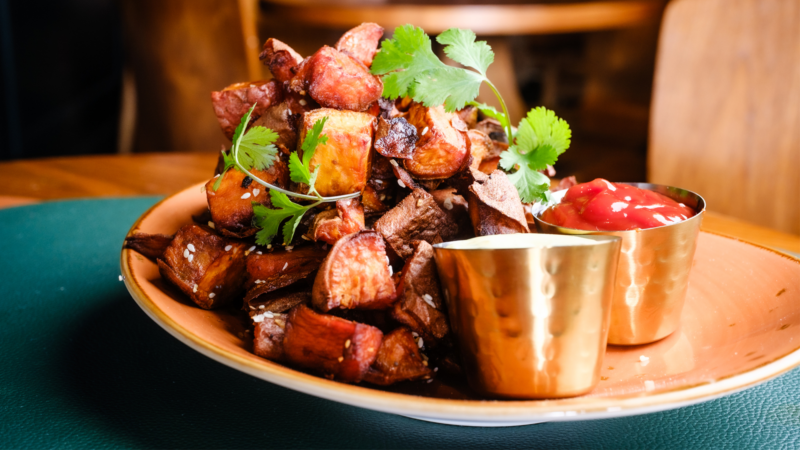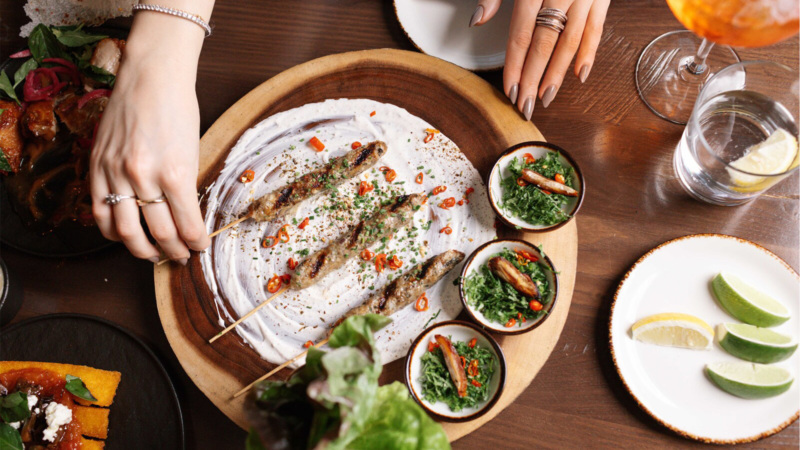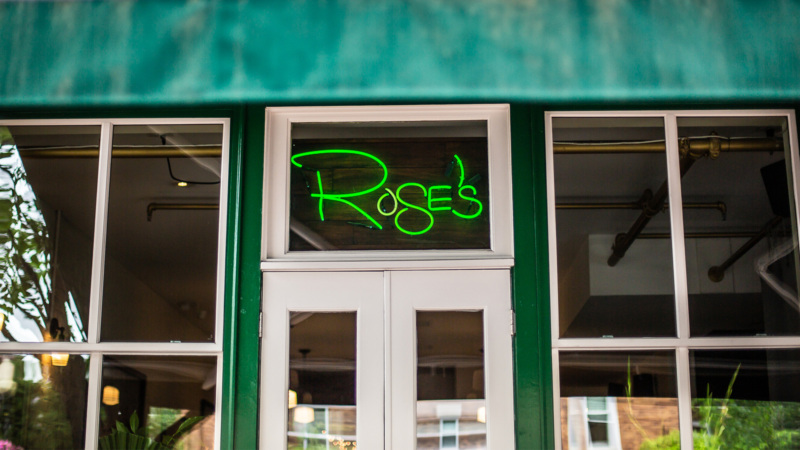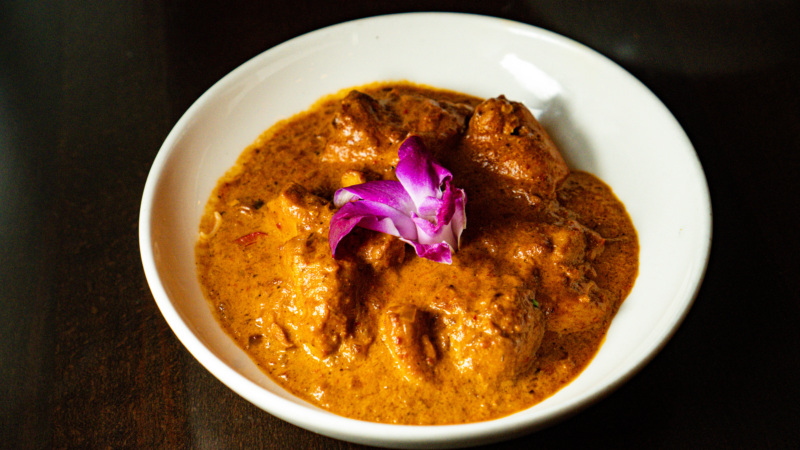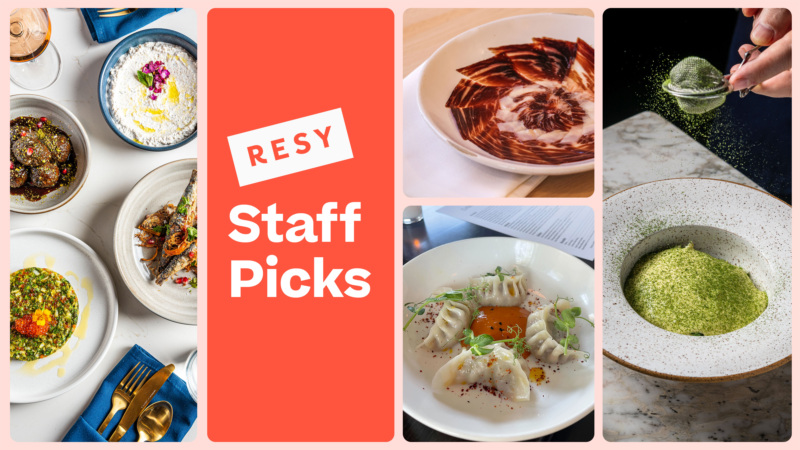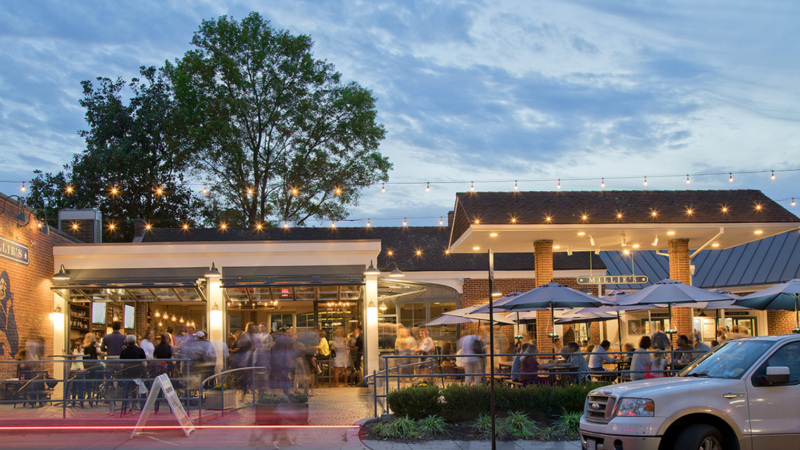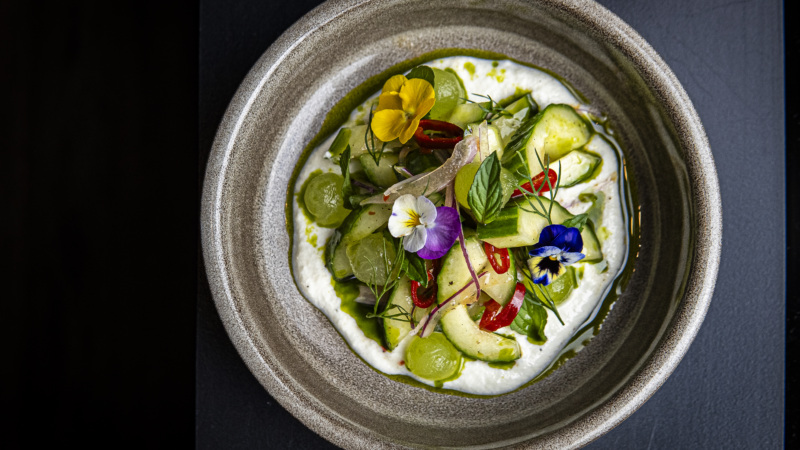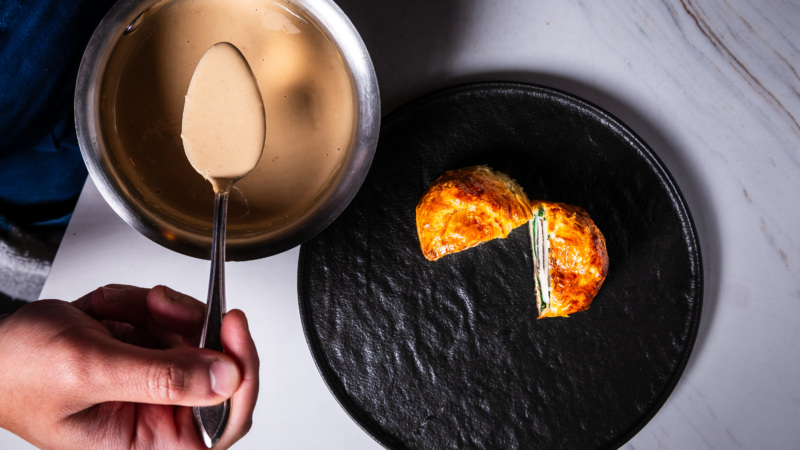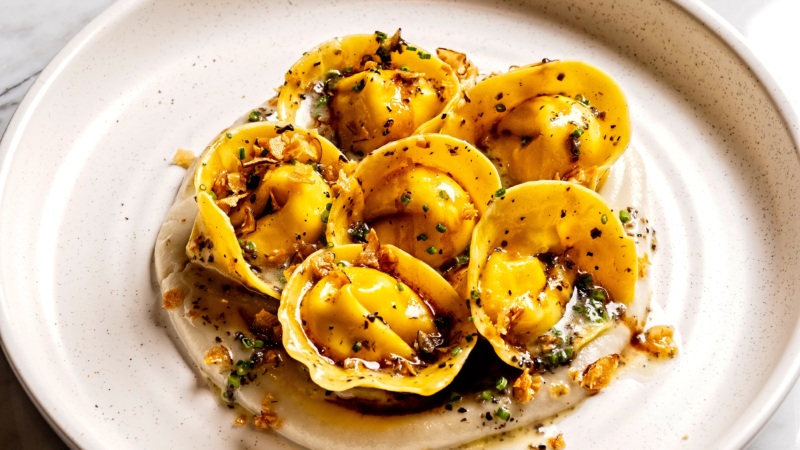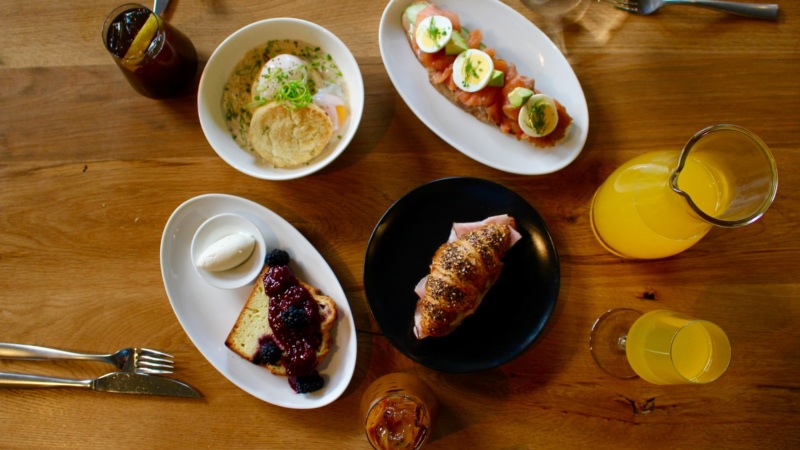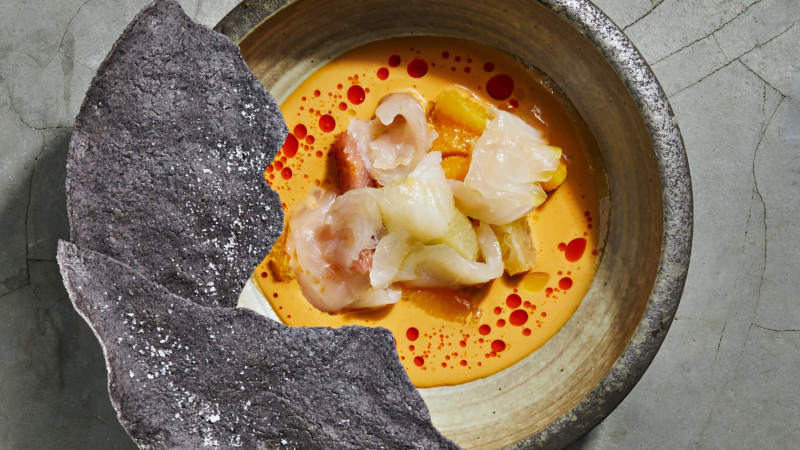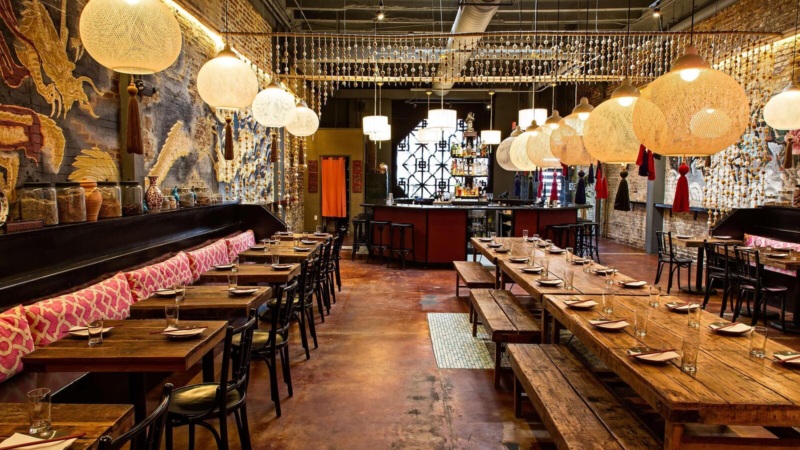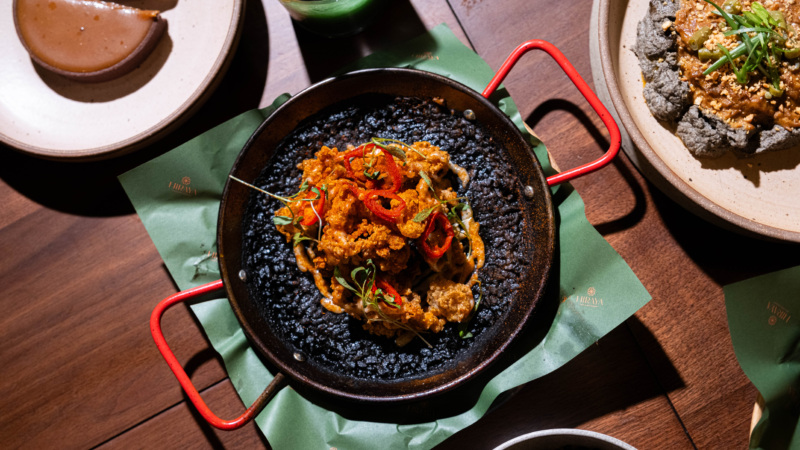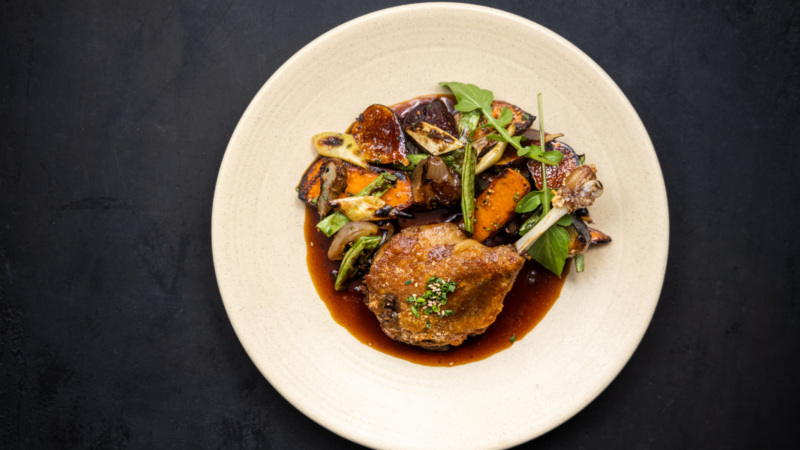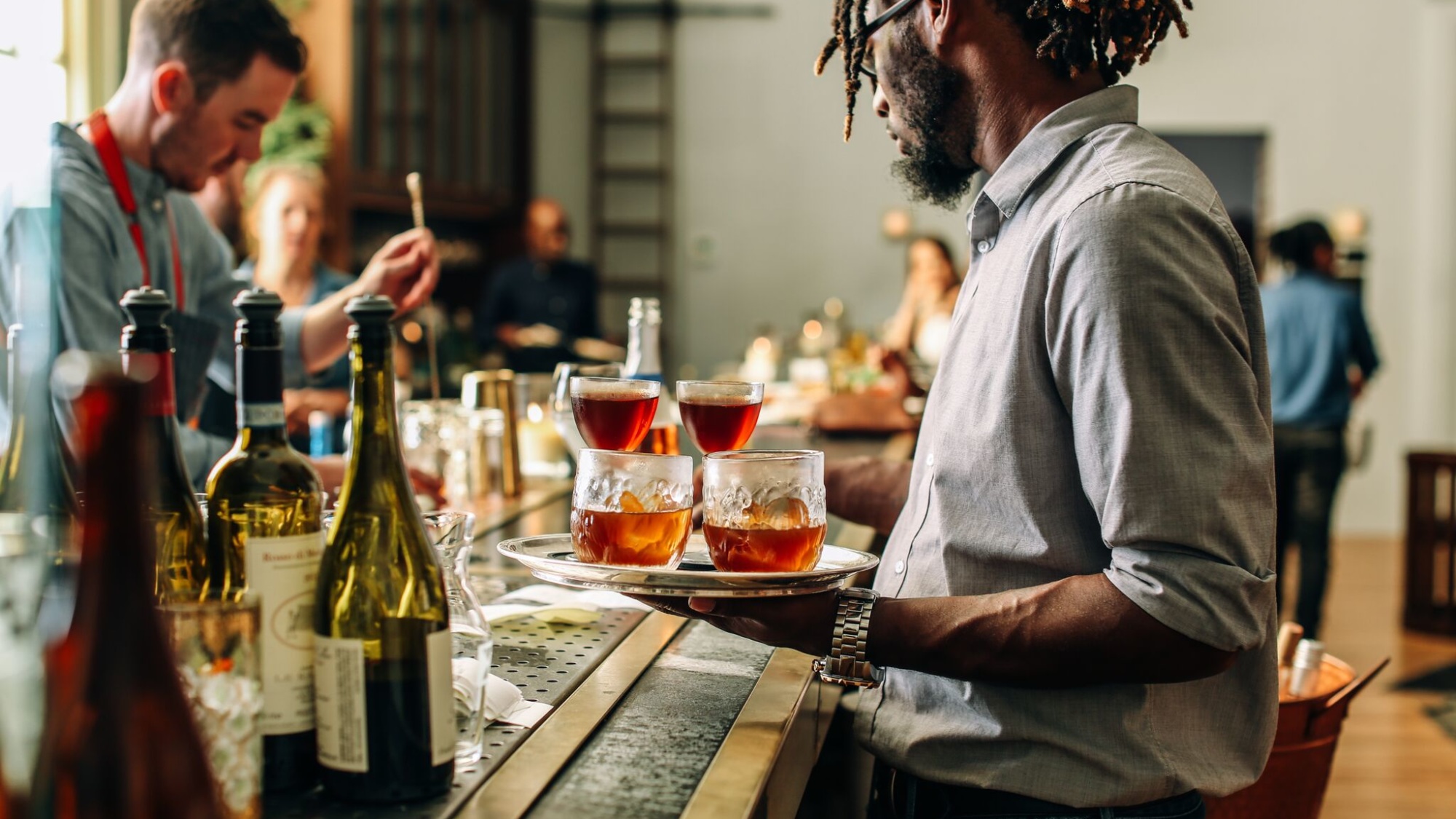
Resy Spotlight Washington D.C.
Raising The Bar at A Rake’s Progress
Beyond farm-to-table cuisine — and the notion of a hyper-local and hyper-seasonal menu — there’s something to be said for how the movement’s ethos has crept into other parts of a diner’s journey.
Restaurants are taking greater consideration of ingredients accessible within a short drive from where they’re grounded, allowing cooks and bartenders to tailor menus in accordance with the goods regional farmers and artisans are creating. This mindful approach has meant that guests have access to more small-batch releases, new obscure inventions, and products perfected over decades in one place—all thoughtfully sourced for optimal flavor and provenance, and utilized in ways that taste great and tell a story.
Nestled inside of D.C.’s The LINE Hotel, A Rake’s Progress is a breathtaking restaurant helmed by Spike Gjerde, the acclaimed chef known for his staunch commitment to cooking exclusively with goods grown locally. The bar program, led by Corey Polyoka, is rooted in the same ethos that Gjerde first established at Baltimore’s Woodberry Kitchen: build close relationships with the farmers, purveyors, and artisans making waves in the region—the people whose stories they were setting out to tell.
With Baltimore only an hour’s drive away from D.C., Polyoka was able to utilize locally-driven product sourced from Maryland and Pennsylvania through his work at Woodberry Kitchen. Still, a shift in terroir required digging into Virginia. The result? A menu that pulls from traditional Southern “drinkways,” created in conjunction with what small producers in the region are making. Take the Winter Julep, for example. Polyoka worked closely with Virginia’s own Catoctin Creek, whose artisanal apple brandy serves as the base, and the cocktail is presented in a stone cup handmade by Katie Aldworth, of local ceramic studio Georgia Lee.
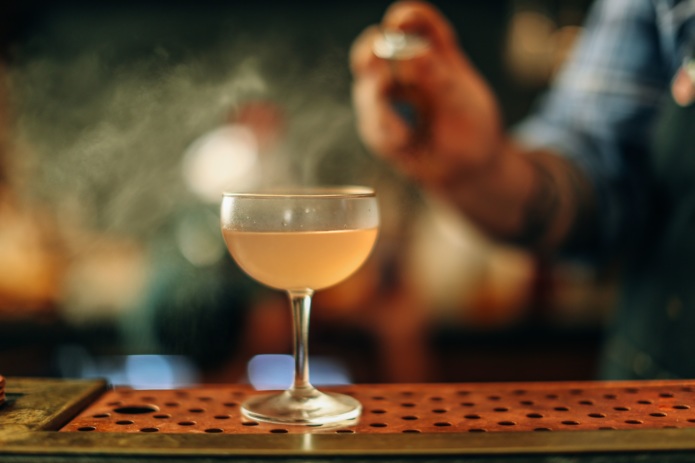
To add depth to the beverage offerings, spirits are supplemented with a variety of locally grown fruits and herbs. In warmer months, there’s an abundance of fresh produce, but the terrain has also become more productive year-round: “I can get soft herbs that are grown in a shipping container, things that I couldn’t get before,” Polyoka states. While a winter cocktail might use a preserved blackberry from the summer, it also might incorporate mint that was grown in January. And then there’s the restaurant group’s Canningshed, a preserving arm run by Lauren Sandler. “She makes the most amazing fruit syrups, juices, [and] dried herbs,” Polyoka gushes. The restaurant’s signature, the “improved” Old Fashioned, relies heavily on her output: guests select an exclusive spirit from the “rakehouse” section of the menu—whole barrels handpicked by Polyoka from a handful of trusted distillers—plus house cordials and bitters of their choosing. “Those flavors change throughout the year, depending on what we have available to make our fruit sugar from,” he explains. The concept dates back to the 1800s, when people began to add liqueur to liquor, to improve the taste of cocktails.

For a dose of pomp and circumstance, there’s wood smoked tableside, sorghum pressed-to-order for rum, and hand-cut ice. Order a “Warms You Twice” and bear witness to a poetic process that includes suspending smoke in a double Old Fashioned glass before it’s filled with hand-cut ice and fused with a blend of whiskeys and a dash of raisin water. Another popular choice is the vinegar, honey, and spiced-based “Haymaker.” “We build a lot of drinks that don’t have an acidity base,” Polyoka explains. Seeing as D.C. is far from the citrus-plenty land of California, vinegar and verjus have become common threads.
The “Progress” section of the menu denotes non-traditional libations; it’s where Polyoka encourages his team to explore their own identity, whether that’s in a sour or a flip. Teamwork is a significant driver of A Rake’s Bar’s success, and it’s what Polyoka is most proud of. “I’ll let you in on a little secret,” he admits, “I’m not a great bartender.” His role is to think big picture; strengthen and forge relationships with best-in-class producers, take advantage of the internal resources available to him, and guide his bartenders to craft cocktails based on what the region is yielding. That the founding principles of sustainability at Woodberry Kitchen now function in an entirely different city is a testament to what Polyoka, Gjerde, and Sandler have created. “A whole new team of bartenders got to learn about it, value it, and bring it into existence,” Polyoka says, noting that decisions around sourcing and sustainability “have to [be made] in hospitality, and I don’t think they’re thought about enough on the beverage side.” The most rewarding part of it all is that when his bartenders leave to pursue other opportunities, they’ll bring the values of A Rake’s Progress with them, in turn influencing beverage programs throughout the city and across the globe.

A little-known fact about A Rake’s Progress is that you can walk into the lounge and order from the full restaurant menu. The environment will be a bit more casual than a reservation grants you in the dining room, but a bartender will deliver the end-to-end hospitality experience that extends throughout the operation. “You’re going to have a great person taking care of you… [and] you’re going to be able to eat all of the food that’s coming out of the kitchen with a great cocktail,” Polyoka says. If all you want is a Rakehouse Boulevardier and a burger (or some popcorn), you’ll be taken care of just as well. Either way, you might find yourself drinking from a Baccarat crystal glass, scavenged from a nearby antique store by Polyoka’s own mother-in-law.

